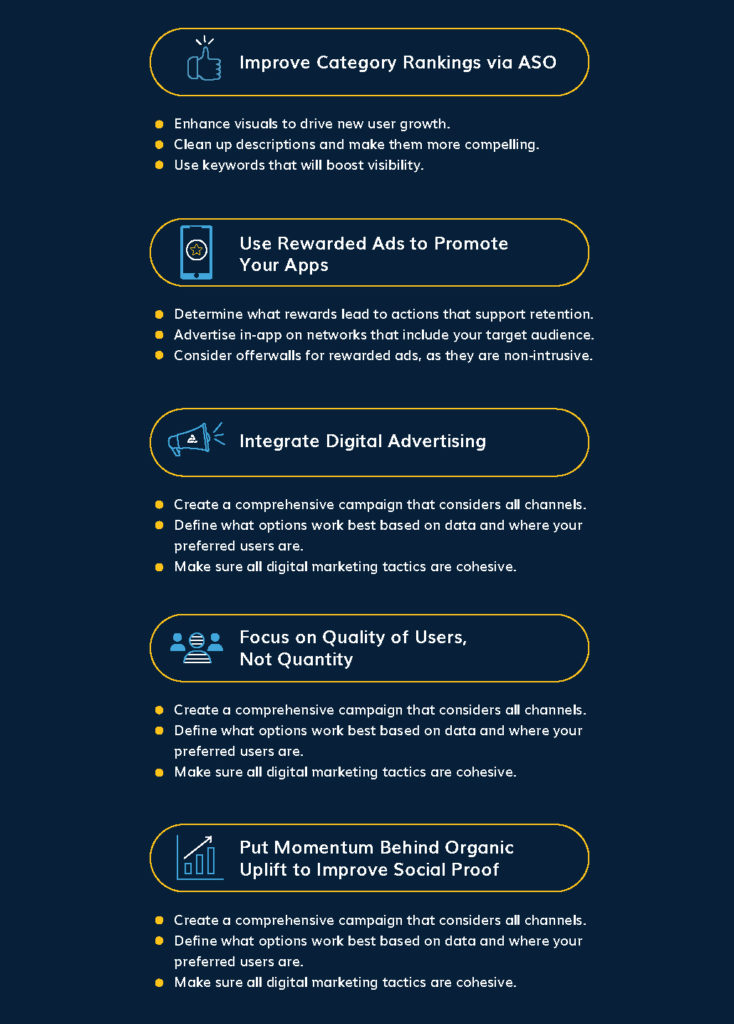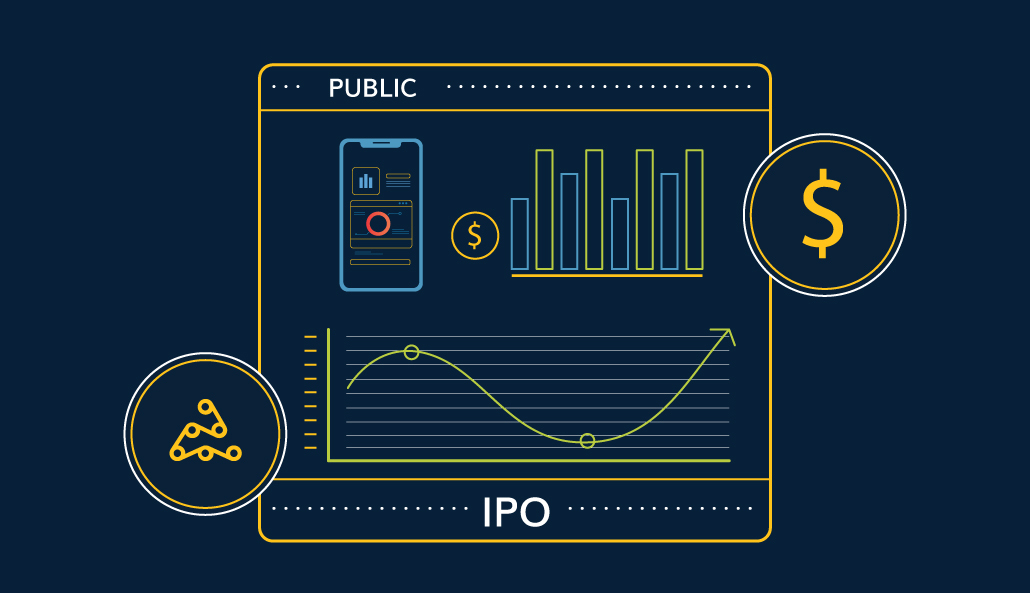Initial public offerings (IPOs) saw a significant acceleration in 2020. Innovation and a changing economy decided to go public, and 2021 has been hot, with many organizations on the list. Many of those that executed their IPO process or plan to in 2021 have something in common—they have an app. It may not be their only channel, but it’s a critical one. Pre-IPO, scaling a mobile app is a strategic move.
Mobile Apps That Went Public or Plan to in 2021
Thus far in 2021, several mobile apps went public, including several high-profile ones like Bumble (dating app), Coursera (online learning app), SoFi (fintech app), Coinbase (bitcoin app), Roblox (gaming app), and Playtika (gaming app). Apps expected to IPO the rest of the year include Instacart, Robinhood, Nextdoor, and Stripe.
While those companies likely have many user acquisition (UA) strategies in play, what can really move the needle in mobile app scaling for any company going public?
But what were tactics that moved the needle?
Scaling a Mobile App Before the IPO: What Worked?
In looking at some of the organizations that went public in IPO, you can find some inspiration. Let’s dive into some of the ways they sought to improve UA and retention.
Coinbase Uses Clever Ads and a Helpful Tone
First, let’s look at Coinbase, the bitcoin app. Obviously, bitcoin has been in the news and top of mind thanks to tweets from Elon Musk. However, it’s still a risky investment that many consumers don’t understand. The company rode this virality and used clever creative to inspire FOMO in videos.
Looking at their app store ad, you’ll also notice the helpful tone. They offer a reward, validate by noting its member base, and ensure confidence with words like safe and simple.


The company stock price tumbled from its reference price. That’s likely due to the competing narratives on bitcoin from “influencers.” That’s reflected in its category ranking history. It was number one in May for Finance and all free apps. By June 30, it fell to number 14.
Bumble Sticks with Key Messaging to Gain More Users
The dating app Bumble has a unique value proposition. It gives women the decision power. They often use language around “make the first move” and “right matches” to attract members.


In doing so, they differentiate themselves. According to Sensor Tower, the app had 800,000 uploads and booked $15 million in revenue in June in the iOS App Store. It’s also up 14% from its IPO price of $43 a share.
Roblox Emphasizes Reviews to Win Users
Roblox offers a virtual universe where players can create and share experiences. The company uses various acquisition efforts, publishing ads on other apps as a primary way to drive new users.
One other area they leverage is their app store rating. We can all agree that advertising strategies, no matter how diligent, can’t make up for bad reviews. It has over 22 million reviews on Google Play, averaging 4.25, while on the iOS app store, it has a 4.6 with over 5.5 million reviews.


The company’s initial worth on its first day of trading was $45 billion. Its stock price continues to hold steady.
In looking at these successful apps and IPOs, these businesses used various methods to draw in more users from relevant ads to strengthening their value prop to highlighting reviews. Beyond these strategies, what else can you do to scale your app before an IPO?
Ideas for Scaling an App Pre-IPO
The IPO process can be long and complex. It requires being in peak performance to ensure the best valuation. Much of this is on the shoulders of legal, compliance, and financial teams. But marketing has a role to play, too, as you’re the storyteller and responsible for ensuring the app has positive metrics around UA and retention before going public.
Improve Category Rankings via ASO
App store optimization (ASO) is a critical piece in UA. If your app listing on the stores isn’t optimized, you’ll lose visibility through search. Additionally, if your profiles are outdated or ineffectual, you may be sending the wrong message that makes potential users bail.
You’ll need to develop a plan for ASO. You can start by checking out these steps to improve app store ranking.
Use Rewarded Ads to Promote Your Apps
Rewarded ads can create a strong connection with engaged audiences. That’s because they reward the user when they complete an action like downloading your app or registered post-download. There are multiple campaign structures to consider and payment models. One of the most popular and effective is the offerwall. It’s a non-intrusive, user-initiated unit that can power UA.
Integrate Digital Advertising
There are lots of options for digital advertising. If you want to use a myriad of channels to boost UA, you’ll do best when it’s one integrated campaign. First, you’ll want to decide the tactics, which could include social media, display ads, search engine marketing (SEM), content marketing, and earned media.
Connecting all these will be more fruitful than keeping them in silos. Your digital marketing efforts should also complement anything you’re doing in-app, on the app stores, or via rewarded ads.
Focus on Quality, Not Quantity of Users
Just having a large user base doesn’t always translate to more revenue. If those users aren’t engaged, then it’s unlikely you can monetize them in any way. Thus, it might be your best interest to focus on the quality, not the quantity of your users.
Prospective investors would rather see a user base that has high Lifetime Value (LTV) versus lots of inactive users.
So, how do you increase LTV?
Prioritize deep engagement campaigns that keep users on the app longer. You can execute this with rewarded ads, specifically offerwalls. Spending more time on your most valuable users and building their LTV will be a welcome site to future stock buyers.
Put Momentum Behind Organic Uplift to Improve Social Proof
Organic uplift describes the organic traffic and uploads your app experiences after a paid campaign. When you execute something like a burst campaign, you receive a large volume of users that will download the app. In turn, your app will rise in rankings, catching the eye of more users and leading to organic downloads.
When this begins to happen, those organic users are likely to be more engaged than the paid ones. For this segment, you should consider a CPE (cost per engagement) campaign to incentivize reviews. Looking at past data, determine what day new users are most likely to post a review and if any rewarded activity prompted them to do so.
If you can ramp up positive reviews, you’re likely to keep the momentum going from the organic uplift.
5 Ways to Scale Your App Before Going Public
To recap, we’ve broken down the five ways to scale your app before going public in the infographic below.


Ready to Scale Your App Before Going Public?
Launching an IPO is a massive undertaking. The more each team can do to improve the company’s value, the better. As mobile app marketers, your role is to fuel UA. These four opportunities could make a difference.
If you’d like to learn more about these or need help advertising your app, contact our experts today.


